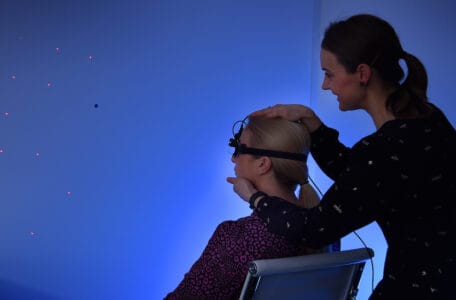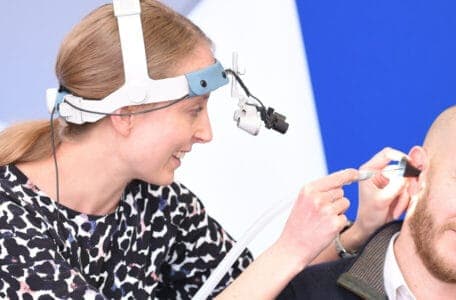What’s going on between your ears when you’re losing your hearing? Emerging research is beginning to give us some revealing, and disturbing answers about brain function and hearing loss. But it also offers some hope.
Looking at brain scan images, we can see the brain of a person with normal hearing, with the areas that process sound are lit up as they should be. When we look at the brain of a person with mild hearing loss, we can see there’s less activity and what there is has shifted to other areas.
Professor Anu Sharma at the University of Colorado produces such images using EEG technology as part of a major study of how the brain reorganizes itself in response to hearing loss, and what the consequences of those changes are.
In a nutshell, the bits of your brain that process high frequency sound, for example, find themselves with less and less to do as your ears gradually lose the ability to process and deliver those signals. As a result, your brain puts them to work on something else. That’s the basic principle behind neuroplasticity.
“We find that this kind of compensatory adaptation may significantly decrease the brain’s available resources for processing sound”, says Sharma. In other words, use it or lose it.
That’s a powerful argument to get hearing aids sooner rather than later, in order to keep those signals coming and the associated areas of your brain functioning normally. And Professor Sharma offers another more ominous reason.
“Compensatory brain reorganization secondary to hearing loss may also be a factor in explaining recent reports in the literature that show age-related hearing loss is significantly correlated with dementia.”
Being deaf is bad enough but the prospect of being deaf and demented should have you running to an audiologist.
In fact, one recent study at the University of Bordeaux showed that there was no difference in the rate of cognitive decline in people who used hearing aids compared to a control group who had normal hearing.
If you’re experiencing symptoms of loss, don’t delay. Get in touch online today or call 01223 661399.




